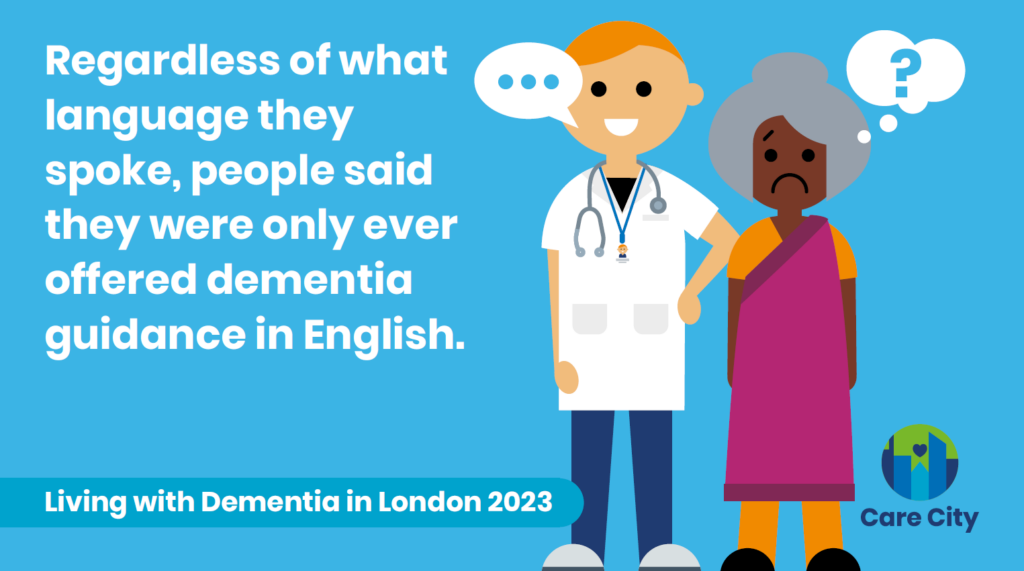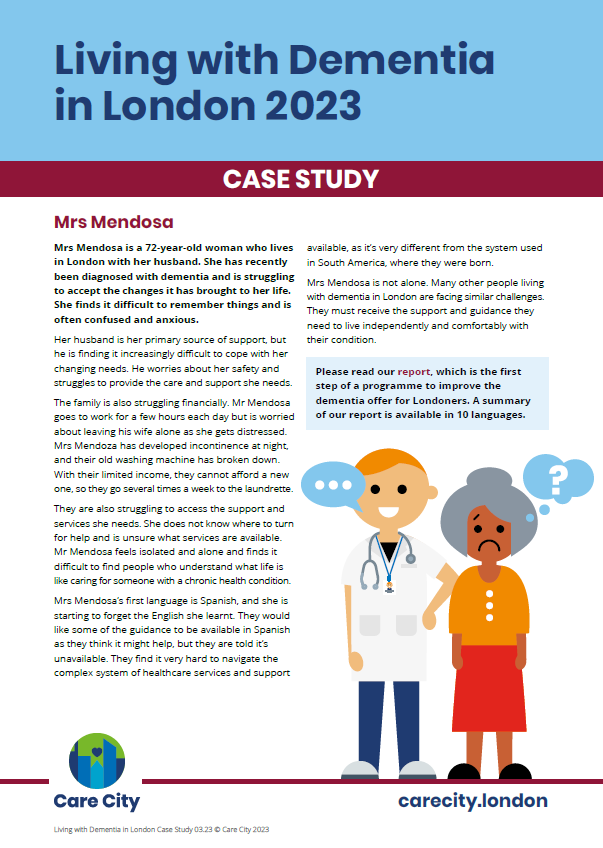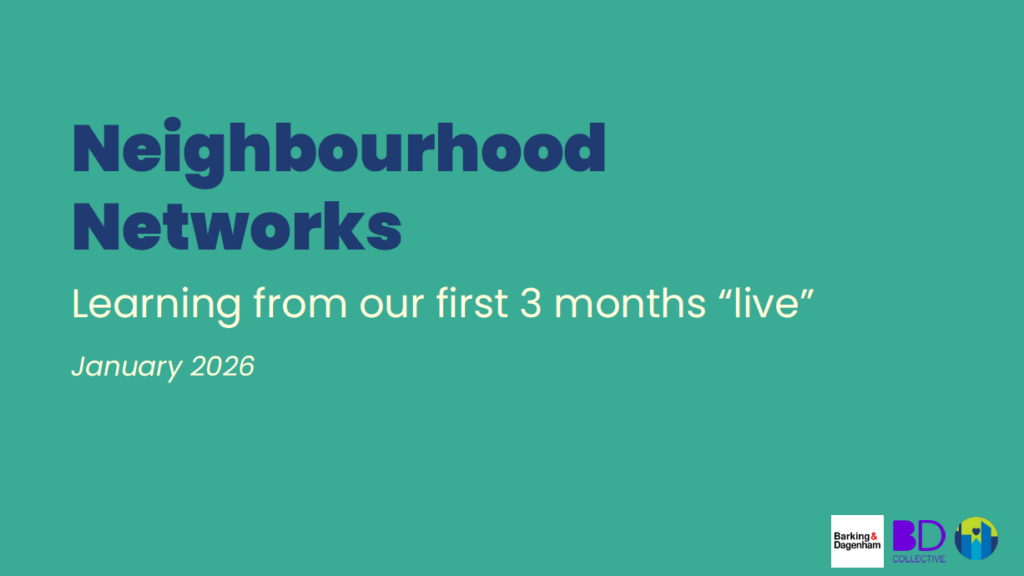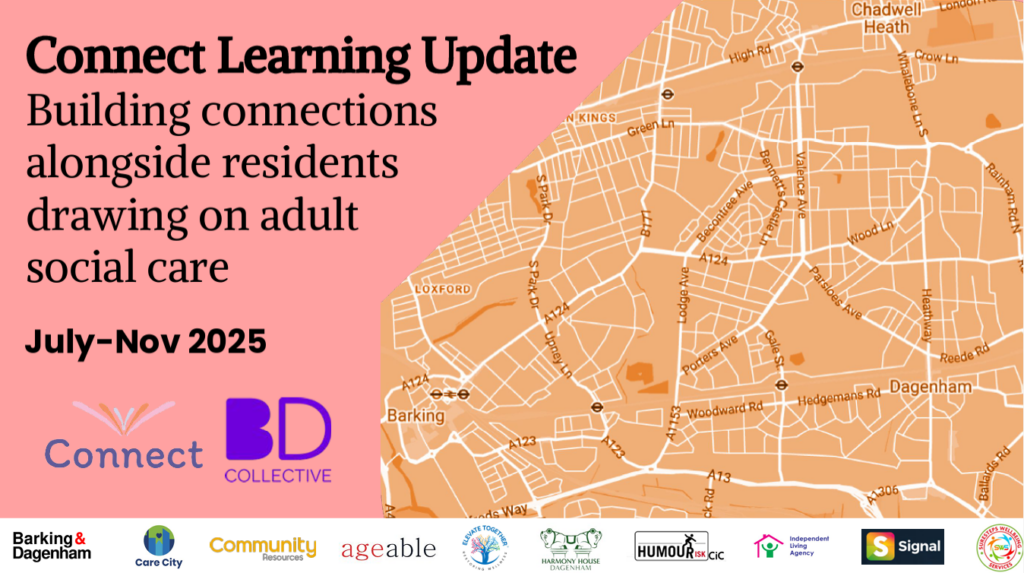Living with Dementia in London

Our report for the London Dementia Clinical Network identifies several areas for improvement in services for people living with dementia and their carers living in London.
The Headlines
- Londoners feel abandoned after they get a diagnosis for dementia, something that is for many extremely traumatic.
- Londoners living with dementia and their carers are facing a fragmented and hard to navigate healthcare system. What is available in one borough is not available in the next.
- Carers don’t know who to turn to for advice and are burnt out. Information is only ever provided in English and there is little respite.
- People want to have the same offer as people with other long term health issues, such as those with cancer or learning disabilities. People want a six month review of their support needs, followed by annual reviews. People want a dedicated dementia practical advice line staffed by dementia experts who they can contact whenever they face issues.
- Professionals feel they are held back by the digital tools and technology they use, in particular, communications and booking systems. They don’t feel they are given a chance to do a good job.
Scope of the report
The Health and Care Partnership asked the London Clinical Dementia Network to develop an Integrated Care System (ICS) framework for post-diagnostic care for people living with dementia in London. This evaluation is a stage in developing that framework.
Our evaluation revealed a fragmented and unsatisfactory experience for the almost 73,000 people in London with dementia and their carers. While pockets of good practice were identified, they were often overwhelmed by demand and a lack of provisions in neighbouring boroughs. Those living with dementia often felt “ignored” and “disrespected”. At the same time, carers struggled with the emotional and physical impact of caring for someone with dementia and the administrative burden of an uncoordinated health and social care system.

This report highlights the struggles that Londoners with dementia and their carers are going through and that we need to continue to improve support after diagnosis. We are currently completing a pilot project implementing local dementia reviews to help address these issues, which we hope can be adopted across London.
Laura Cook, Clinical Programme Lead, London Dementia Clinical Network
Conclusion
Our evaluation of the London dementia offer highlights the need for better coordination and communication between health and social care teams, as well as the need for more comprehensive training and awareness among care providers.
The report also emphasises the importance of early intervention and support for people living with dementia and their carers, including in-person reviews, access to counselling and therapy, and assistance with financial and legal issues.
Additionally, the report calls for more involvement of people living with dementia and their carers in research and advocacy efforts. Overall, the report highlights the need for a more consistent and compassionate approach to dementia care in London.
Executive Summary
Following feedback, we have published an Executive Summary of the report in ten different languages, in addition to English.











What’s Next?
Based on the report the London Clinical Dementia Network will pilot a framework to introduce annual health checks and reviews. The results will be published and shared in 2023.
Case Study
Mrs Mendosa is a 72 year old woman who lives in London with her husband. She has recently been diagnosed with dementia and is struggling to accept the changes it has brought to her life.




